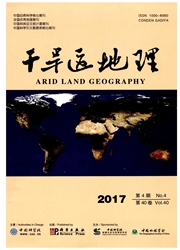

 中文摘要:
中文摘要:
以江西省为例,在对城市化综合水平与生态环境综合质量进行测度的基础上,构建了响应度和综合响应度模型,对城市化进程的生态环境响应时序特征和整体响应强度进行了对比分析。研究显示:(1)改革开放以来,江西省城市化综合水平逐步提高,现已进入城市化快速发展时期;而江西省生态环境综合质量及其分量不仅波动,还呈现出不同的变化特征。(2)1978-1990年和1991-2005年两个时段内江西省生态环境对城市化的响应具有不同的响应特征和强度,这不仅反映在其响应函数具有不同的方程形式,而且表现在其每个年份的响应度和两个时段内的综合响应度也不相同。综合响应度计算结果表明,城市化增长阶段与生态环境质量改善阶段并不具有一一对应的关系。
 英文摘要:
英文摘要:
Urbanization is a main trend of social-economic development all over the world. But with the scale of urbanization enlarged and the human development intensified, a large scale of infrastructure construction and industry development has brought pressures on regional eco-environment for high material consumption and heavy pollution. This paper has taken Jiangxi province as a case and has made the application analysis. Through calculating the comprehensive level of urbanization by means of principle component analysis (PCA) method and comprehensive quality of eco-environment with analytical hierarchy process(AHP) and fuzzy membership representations( FMR), the paper puts forward response degree model (RDM) and comprehensive response degree model (CRD) by using the economic elasticity function and analyzes the temporal response characteristics and total response intensity of eco-environment to urbanization from 1978 to 2005 in Jiangxi Province. The results show that firstly, the compre- hensive levels of urbanization in Jiangxi Province are gradually increasing from 1.76 at the beginning, and it is en- tering the stage of 2.0 from 1991 that urbanization process is quicker, but the comprehensive quality of eco-environment and its components take on different curves and are unstable; secondly, there are different response characteristics and response intensity of eco-environment to urbanization between 1978 to 1990 and 1991 to 2005, which not only demonstrates different response functions, but also different response degrees for every year and comprehensive response degrees for the two periods mentioned above. And the comprehensive response degrees of the eco-environmental comprehensive index and its three component indices to urbanization are 4.5264, 16.4612, 10.6115 and 3. 6055 respectively during 1978 - 1990 and 2. 2414, 0. 9784, 0. 4555 and 1. 1274 respectively during 1991 -2005, which reveal that the corresponding relationship between the urbanization process and eco-environment changing does
 同期刊论文项目
同期刊论文项目
 同项目期刊论文
同项目期刊论文
 期刊信息
期刊信息
